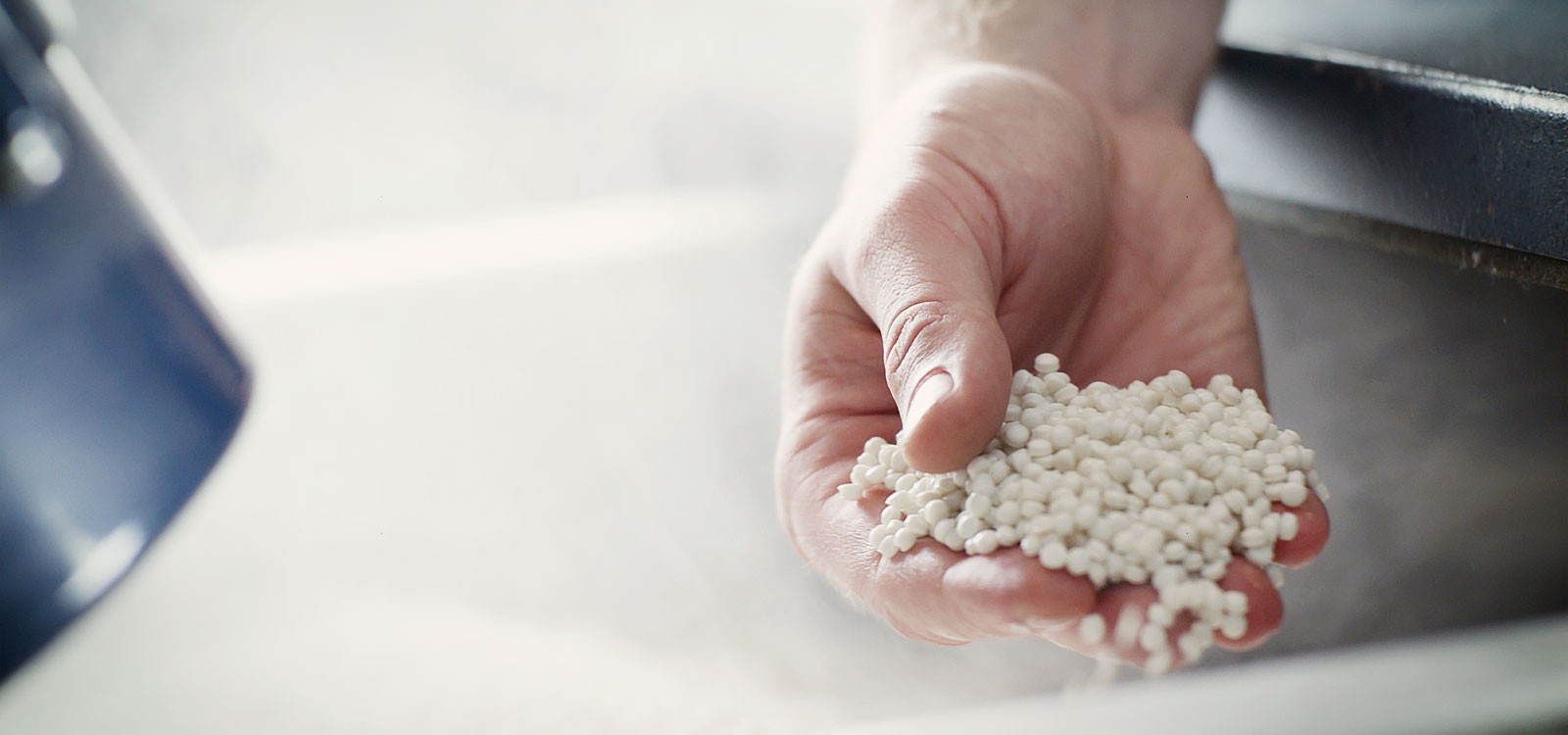A circular economy as a sport clothing manufacturer is achievable from sourcing to processing without compromising on the quality and performance of the products.

An ambitious research and development project, built in stages, demonstrating the feasibility of fiber-to-fiber recycling in the polyester sector.
Project Inception
The project originated from a collaboration between Sportstex and RadiciGroup, a group known for their expertise in the circular economy, aiming to recover polyester textile waste from sports apparel like football and volleyball uniforms. Pure Loop, experts in machinery recovery, was brought on board to pinpoint the best technology for producing new textile fibers. The R&D teams from these three companies carried out various experiments to craft a recycled textile product with advanced technical properties.
Key Outcomes
Initial success was achieved with a mixed recycling method, blending varying amounts of granules from recycled bottles (already an established practice at RadiciGroup) with granules from recycled fabric polyester. This process allowed for the gradual optimization of various stages, leading to a yarn made entirely from recovered textile waste.
Industrialization & First Jersey
Industrialization and the First Jersey Once this model circular system is industrialized, it will be possible to easily produce garments from recycled polyester that can be recycled again at the end of their life. Shimano was the first company to support this sustainability project by branding the first jersey resulting from this supply chain collaboration. A cycling jersey created through this process was showcased for the first time at ITMA 2023.
This research project has introduced a new recycling approach that enables the recovery of high-quality polyester fibers, for example, from worn clothing, establishing a textile " closed loop." Erdotex, a company specializing in sorting used clothing, will support the project with specialized sorting processes, aiming to develop a genuine industrial process.
"Creating an increasingly sustainable textile sector is central to Radici InNova's strategy; the Radici Group's division focused on innovations in the circular economy. We've been collaborating with our partners, utilizing our knowledge in textile waste recovery to develop innovative, high-performing, and eco-friendly solutions," highlights Gianni Todaro, R&D specialist at RadiciGroup Advanced Textile Solutions.
"In recent years, we have prioritized environmental responsibility, taking significant measures to reduce our ecological footprint. The fiber-to-fiber recovery process elevates our sustainability efforts, enabling us to establish a complete closed-loop system from products to consumers in Europe. This innovation will be beneficial for both our customers and other European manufacturers," says Andreas Widmann, CEO of Sportstex.
"Recycling has vast potential in the fiber and textile sectors. I am confident that recycling will soon become a standard practice in the industry. I am particularly excited that RadiciGroup's pilot project represents a significant move towards more sustainable fiber and textile production. We're proud to have contributed to the project's recycling technology with our ISEC evo FibrePro IV," shares Merlijn van Essen, Sales Director at PURE LOOP.
Thanks to this project, the participating companies have proven the feasibility of circular economy and recycling initiatives that repurpose materials otherwise considered waste, thereby reducing the environmental impact of the textile sector. This achievement demonstrates how combining different expertise can foster environmental protection and build a future based on circular economy principles.
